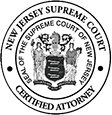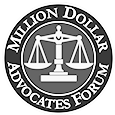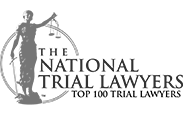On your daily drives, you may excuse a certain level of distraction. You may not think it’s dangerous for you to adjust the radio, check your navigation system, or chat with your passengers. But when these activities last too long or go to excess, they can cause traffic accidents, many of which result in injuries and even death.
In this blog, we’ll discuss the three categories of distracted driving, how distracted driving affects traffic, and how the involvement of a distracted driver could affect your personal injury claim.
Categories of Distracted Driving
Distraction can come in many forms, especially on busy roadways. To safely operate a vehicle, drivers must be able to multitask, so distraction can have such a large impact on driving ability. Distracted driving comes in the following three primary forms.
1. Mental
Mental or cognitive distraction can come from anywhere and may not be visible to the passengers in the vehicle or the passing drivers. A driver may be mentally distracted when he or she starts to focus on something else more than on the road. For example, if a driver just had an argument, he or she may be too angry or sad to concentrate properly. Mental distraction can also come from music, audiobooks, podcasts, and conversations.
2. Optical
Safe driving requires drivers to stay aware of their surroundings at all times by scanning the road and the reflections in their car mirrors. Looking at anything other than the road or looking too long at a specific object on the road can cause dangerous optical distraction. For example, looking back to talk to a child can cause just as much distraction as trying to see wildlife on the side of the road as you pass.
3. Physical
Physical or manual distraction occurs when a driver takes one or both hands off the wheel to do something else. Smoking, adjusting the radio, performing grooming activities, eating, and navigating can all constitute physical distractions. While physically distracted, a driver may not notice important cues from the road or may be unable to react to those cues due to decreased control of the vehicle. Any type of distracted driving can potentially contribute to motor vehicle accidents.
How Distracted Driving Affects Traffic Accidents
Distracted driving is one of the most unsafe driving practices currently known to law enforcement. In 2015, the National Highway Traffic Safety Administration, or NHTSA, reported 391,000 injuries related to distracted driving. In that same year, distracted driving claimed 3,477 lives. The National Safety Council, or NSC, estimates that more than 1.6 million automotive crashes of all types occur each year because of cell phone use. In fact, out of every four vehicle crashes, at least one involves cell phone use.
This massive risk related to use of electronic devices while driving results from the fact that cell phone use increases the amount of time spent looking away from the road. In fact, texting increases time spent looking away by an average of 400 percent. Despite the inherent danger of distracted driving, many drivers take the risk on a daily basis. Stunningly, the NHTSA 2015 estimates state that almost 700,000 drivers use electronic devices, like cell phones, behind the wheel over the course of the average day.
How Distracted Driving Affects Personal Injury Claims
Auto accident personal injury claims are either based on the negligence or the recklessness of the at-fault driver. Because distracted driving obviously and consistently decreases a person’s ability to drive, driving while distracted can legally qualify as recklessness.
In some claims, the driver must have violated a specific state law in order to directly affect the case. For example, in New Jersey all drivers are required to use hands-free devices if making a call, and new or student drivers are not permitted to use phones while driving even if they use a hands-free device.
If the other driver was distracted at the time of your accident, you may have a personal injury claim and be entitled to a settlement. However, you and your lawyer may need to bring evidence that the driver was in fact distracted as part of your claim.
Evidence of distracted driving may include:
- Admission from the driver that he or she was distracted at the time of the accident
- Eyewitness reports of the driver’s behavior where the witness saw the item causing the distraction or saw the driver behave erratically
- Past citations for distracted driving, such as tickets
- Phone records from the driver’s phone service provider that show calls or texts taking place while the driver was behind the wheel
- Traffic-camera footage of the driver
This type of evidence can strengthen your claim and may positively affect the size of the settlement you are entitled to if the claim is decided in your favor.
If you’ve been involved in a car accident and know or suspect that the at-fault driver was distracted at the time of the incident, discuss your claim with the legal team at Gelman Gelman Wiskow & McCarthy LLC. We handle all types of auto accident personal injury claims, including those involving distracted drivers.







